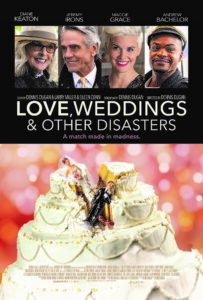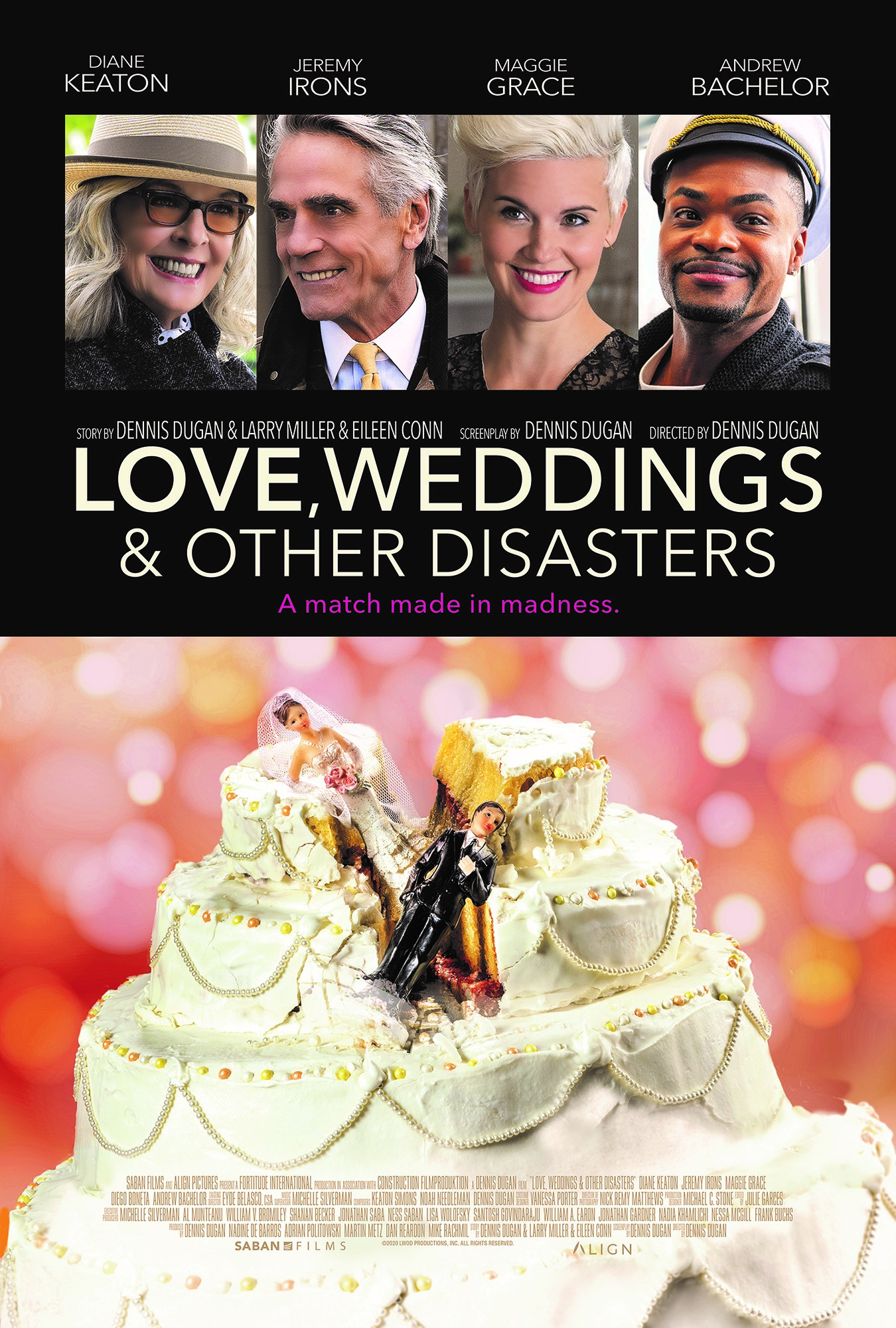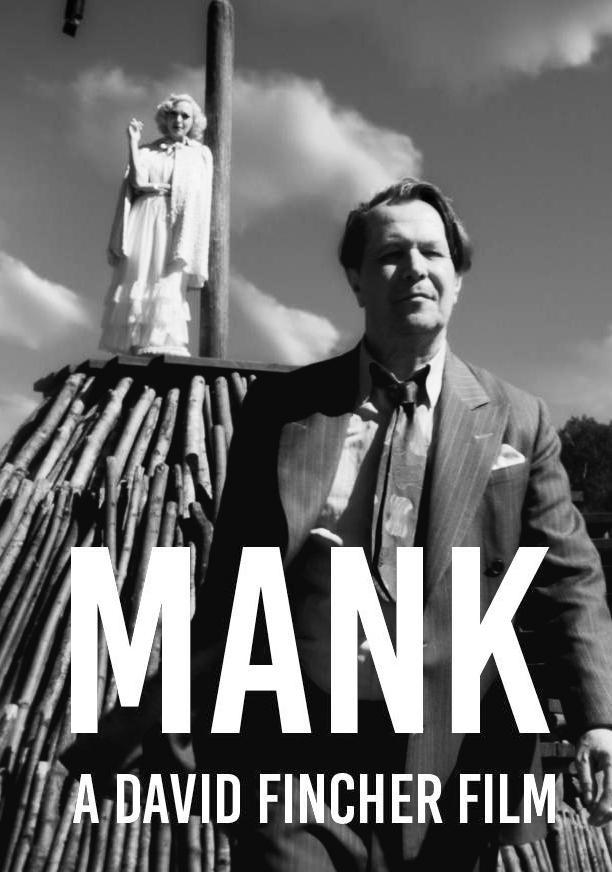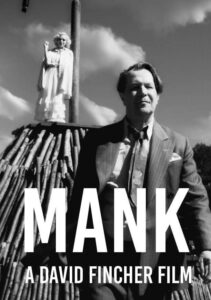Love, Weddings & Other Disasters
Posted on December 3, 2020 at 5:26 pm
D| Lowest Recommended Age: | High School |
| MPAA Rating: | Rated R for some crude material and strong language |
| Profanity: | Some crude language |
| Alcohol/ Drugs: | Social drinking |
| Violence/ Scariness: | Comic peril and violence, references to mob killings |
| Diversity Issues: | Insensitive portrayal of disability and gender non-conformity |
| Date Released to Theaters: | December 4, 2020 |

And here we are, half a century later, with Keaton in a very similar but not nearly as good movie, “Love, Weddings & Other Disasters.” It’s not just not up to the standards of “Lovers and Other Strangers” or other multi-storyline romances like “Love, Actually.” It is not up the standards of “The Love Boat.” The script sounds like it was written by 11-year-olds, lots of pratfalls and “jokes” about genitalia. None of the characters behave in a manner that is rational, believable, relatable, or appealing. Oddly, it manages to be more dated than the 1970 movie, with insensitive and juvenile jokes about disability and gender presentation.
The ever-young Keaton plays the most ancient of rom-com characters, a manic pixie dream girl, all whimsy and cheer. Her counterpart is played by fellow-slumming Oscar winner Jeremy Irons as a caterer, the kind of rigid perfectionist who uses a ruler to make sure that the wineglasses are not half-an-inch out of alignment and says things like “We start with perfection and ascend from there.” Their meet-cute is a “blind” date. She’s actually blind, get it? And she knocks over his pyramid of champagne glasses because she’s blind, get it? Because of course a lovable wacky girl would have an incompetent guide dog, of course.
The other characters include a would-be wedding planner who literally dumps her fiance as they are sky-diving after he breaks up with her mid-air, a candidate for mayor who is getting married in eight days and his fiancee, a amphibious vehicle tour guide (unlike the movie I highly recommend the Ducks tours, by the way) trying to find the girl of his dreams even though they only spoke for a moment, he doesn’t know her name, and his only description of her is that she has a tattoo of Cinderella’s glass slipper), and, I am not making this up, some game show contestants competing for a million dollars by being literally chained to one another. Note that the female of this chained couple is not a lawyer, as she told the game show; she is a stripper and there are members of the mob (they say Mafia but they have Eastern European accents) who want whatever she wins. By the way, the game show host is smarmily played by the movie’s director, Dennis Dugan, taking a break from Adam Sandler vehicles.
This movie exists in a world where politicians are elected on the basis of their Instagram posts, a family member’s destructive addiction gets shrugged off as if it’s a lovable quirk, people take tours of historical sites to hear made up commentary, and dozens of women get tattoos to try to get a boyfriend they saw on TV. “My jokes are older than these buildings,” says the tour guide (Andrew Bachelor, whose charm and screen chemistry almost triumph over the material). Yeah, that goes for the whole movie.
Parents should know that this movie has crude humor, sexual references, strippers, and comic peril including mobsters who talk about killing people.
Family discussion: Which couple were you rooting for the most? Are you more of a perfectionist or a go with the flow type?
If you like this, try: “Lovers and Other Strangers” and “Valentines Day”




